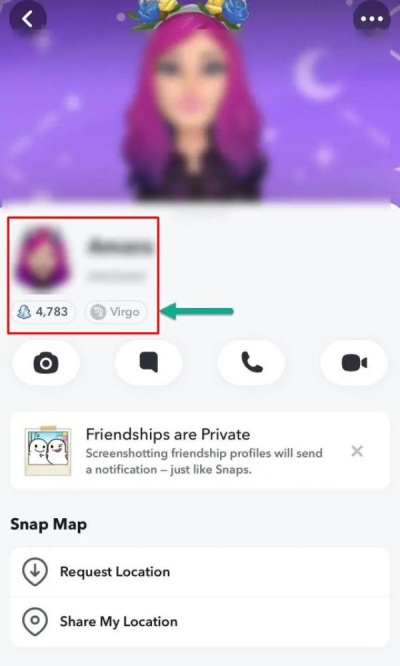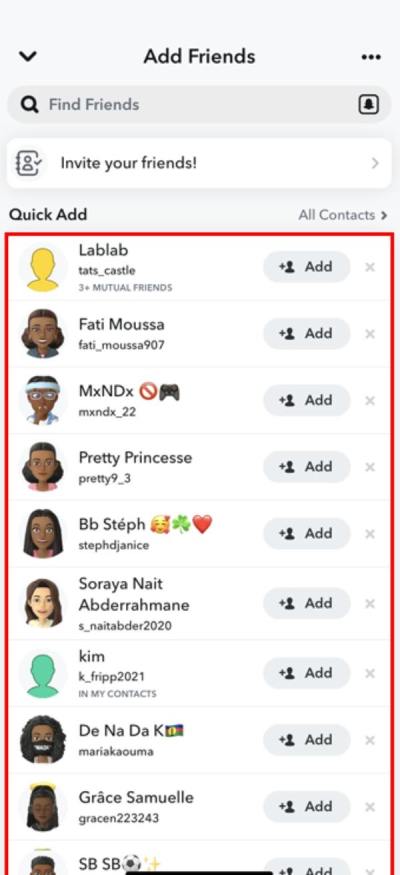Although Snapchat is one of the largest social media platforms in the world, it is still one of the most confusing, too. Disappearing messages and the Snapmap feature made it unique. As the network’s popularity grows, so does the number of fake Snapchat accounts. Now is the time to find out if you don’t know how to distinguish real people from unscrupulous fakes. The guide below lists several warning signs that you’ve encountered a fake account that must be blocked or reported.
What are the fake accounts used for?
Fake Snapchat accounts are used for various malicious purposes, which can, for the most part, be categorized as scams and phishing.
Scams:
Scammers create fake Snapchat accounts to trick users into taking their money or personal information. A scammer can impersonate someone from your contacts or claim to be some famous person or an attractive stranger. The scammer will then try to talk with you and befriend you. Once the scammer has gained your trust, they will tell you about some fantastic deal they can make or ask you for money.
- Impersonation: To evoke a sense of trust in the victim, the scammer uploads photos and the names of real people to their fake page, not necessarily those of the same gender as the scammer.
- Romance: The scammer may also try to manipulate you by pretending to be romantically interested and demanding that you give some money. This type of online cheating has been labeled as ‘catfishing.’
Opportunities: Scammers sometimes offer fake jobs or pretend to sign you up for an investment opportunity requiring a fee. This process can go on and on in the case that the scammer’s goal is to suck you into their Ponzi or Pyramiding scheme or, otherwise, take your money and block you.
Phishing:
Phishing is an attempt to steal your sensitive information. It may be usernames, passwords, credit card numbers, bank account information, or other important data to utilize or sell stolen information. By pretending to be a reliable source, the attacker lures the victim to trick them.
The most common procedures of phishing are listed below:
– Advanced fee scam: This is a common email phishing attack in which the perpetrator sends you a Snapchat message with a reward link. The message states that you can receive a large sum in return for an advanced payment of money, or they will provide you with an investment opportunity. However, the scammer will most likely block you when you pay the said amount.
– Website forgery: The attacker forges a completely identical website to the victim’s bank account. When the victim clicks the link or uses the search engine, special information takes them to their scamming website.
– Account deactivation: This type of attack involves tricking other people into giving away their money by threatening to deactivate their accounts. For example, the perpetrator can send you a forged bank document to scare you that your bank account will be deactivated if you do not act quickly.
– Clone phishing: In this method, the attack is prepared and planned. The clone phishing attack involves a request for personal information. The address is also linked to the official website but with modifications. The message is made to look like a legitimate one.
Spot and avoid fake Snapchat accounts, enhance safety with FlashGet Kids monitoring.
How to tell if a Snapchat account is fake?
Identifying a fake Snapchat account involves careful observation and a few key steps. Here is how you can spot a fake account:
Profile Information:
Fake accounts usually never have complete and qualifying profile information. You have to look out for the following:
- Username: A username can be very supportive when judging an online account. If the name seems funny, you are likely dealing with a fake account.
- Display Name: If you see an account with a misleading display name that isn’t in their real username, then there’s a 90% certainty that the account is fake.
- Bitmoji: As you may already know your friends’ personalized Bitmojis, you can spot a generic one or if the account doesn’t even have a Bitmoji. These types of accounts are prime suspects for being fake.



Snap Score:
The Snap Score reflects the user’s activity on Snapchat. It is a good indicator of authenticity. Fake accounts can either have a very low Snap Score or an unusually high Snap Score. A low Snap Score indicates limited activity and interactions. An unusually high Snap Score indicates automated activity or purchased interactions.



Content:
You have to analyze and examine the content of the account you are dealing with. Check out their snaps and stories. Fake accounts often have limited or irrelevant content.
– Personal Photos: Real users typically post photos of themselves, their friends and family, or their daily activities. Fake accounts are usually devoid of this type of content.
– Stolen Images: Fake accounts may use generic images from other sources.



Mutual friends:
Check if you have any mutual friends with the account in question. If you have some mutual friends with them, the account will likely be real. Fake accounts usually lack this type of connection. Having few or no mutual friends indicates a higher likelihood of the account being fake. You have to analyze your friends list for suspicious or repetitive names.



Verification:
Verified accounts have a small emoji next to their name. While not all accounts are verified, this emoji can help you identify the account’s authenticity. Look for the official emoji next to the account’s username. Make sure the profile information matches their public persona.
Keep kids safe from the dangers of fake Snapchat accounts with FlashGet Kids
It may be difficult for your child to deal with fake Snapchat accounts. The scammers will try to get their data. Unfortunately, half-measures will not prevent your child from facing such accounts. You will have to rely on modern apps like FlashGet Kids to protect your child. FlashGet Kids is a great parental control tool that will help you monitor and direct your child’s online activity more effectively.
What is FlashGet Kids?
FlashGet Kids is a one-stop parental control app that can help you keep your child safe. This tool can offer a plethora of monitoring and tracking features that will keep your child away from harmful content. Moreover, FlashGet Kids is especially useful for protecting kids from predators and cyberbullies.
Some key features of this application are listed below:
- Real-Time Monitoring: The screen mirroring and hardware access allows parents to see their child’s activity live.
- Content Filtering: This allows parents to block harmful and inappropriate content, making it out of their children’s reach.
- Keyword Tracking: You can set up specific keywords (even in your native language) to alert you when your child is getting curious about mature content.



How FlashGet Kids helps combat fake Snapchat accounts
Using FlashGet Kids can help you keep your child safe from fake Snapchat accounts. There are a ton of features within this application, that will monitor your child’s digital behavior on social apps like Snapchat. Moreover, you can set up custom alerts to be notified whenever the app detects suspicious activities. Here is exactly how FlashGet Kids will protect your child with its parental control features.
Screen mirroring:
This feature will give you a recording of your child’s phone screen. You can use it to monitor who your kid talks to on Snapchat. If you find your child chatting with an unknown person, ask to see their mobile phone. From there, you can check the stranger’s profile to ensure it isn’t a fake account. In case, you do find it to be a fake account, block them and teach your child not to add strangers.
App blocking:
If your child is too young and curious, you can just outright forbid them from downloading Snapchat using FlashGet Kids. That way, you won’t have to worry about any fake accounts trying to contact your kid.
Keyword tracking:
FlashGet Kids offers a keyword tracker where you can set up custom alerts. This way, you will be notified immediately when your child is talking to a fake account and revealing their personal information. From there, you can intervene and teach your child again about never sharing their data.
Usage reports: This feature from FlashGet Kids will give you detailed reports on everything your child does on their phone. If your child is spending hours on Snapchat, they might be engaged with a fake Snapchat account. At this stage, you can ask your child for their phone and block the fake account.
You can get creative with features like remote Snapshots and screen mirroring within this parental control application. After pairing FlashGet Kids with basic parental intuition, I can guarantee you will never have to worry about keeping your child away from Snapchat fake accounts. So, test out this app if you’re worried about your child’s first steps in the digital world.
Conclusion
The issue of fake SnapChat accounts is becoming increasingly worrying for users worldwide. It threatens security and privacy, and children are particularly vulnerable to such predators. That is why it is only possible to protect oneself and one’s children from this and other swindlers using third-party applications, such as FlashGet Kids. With your alert mind and existing tools, spotting fake accounts has never been easier

